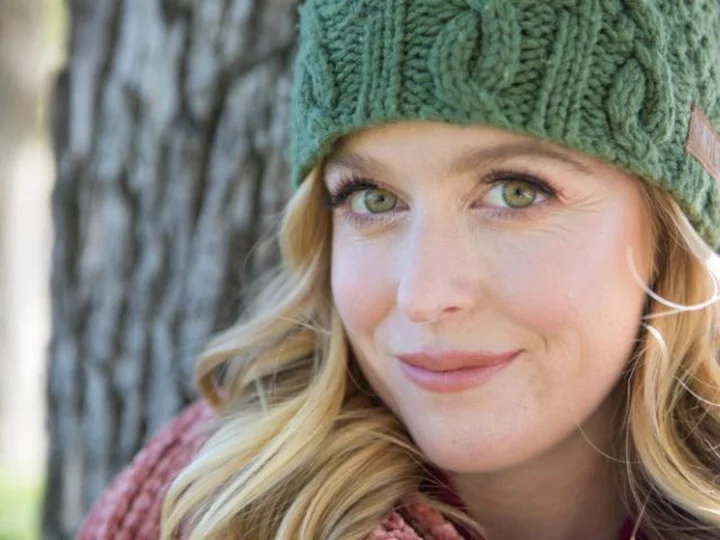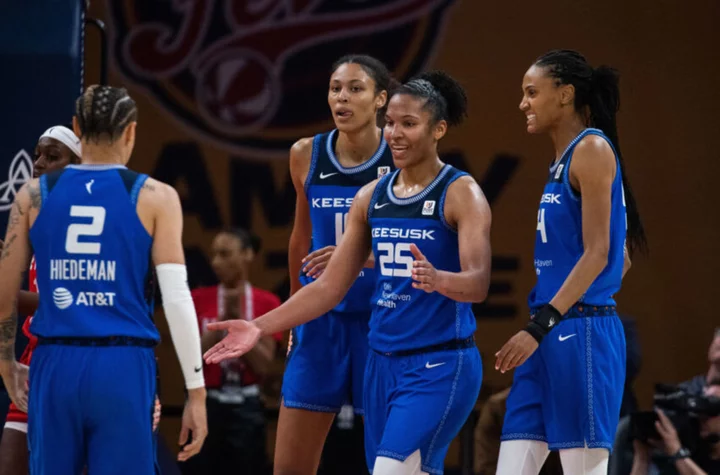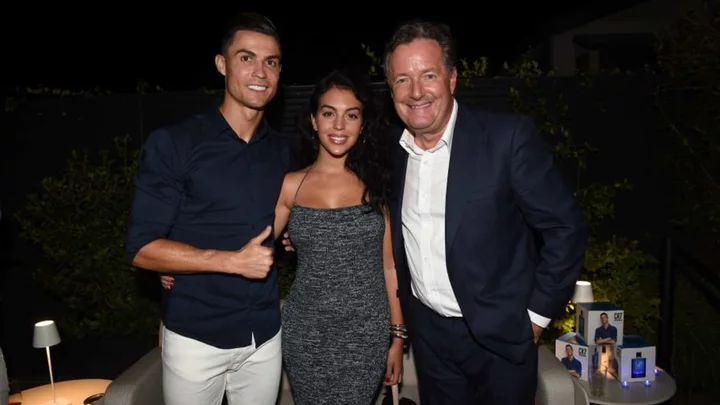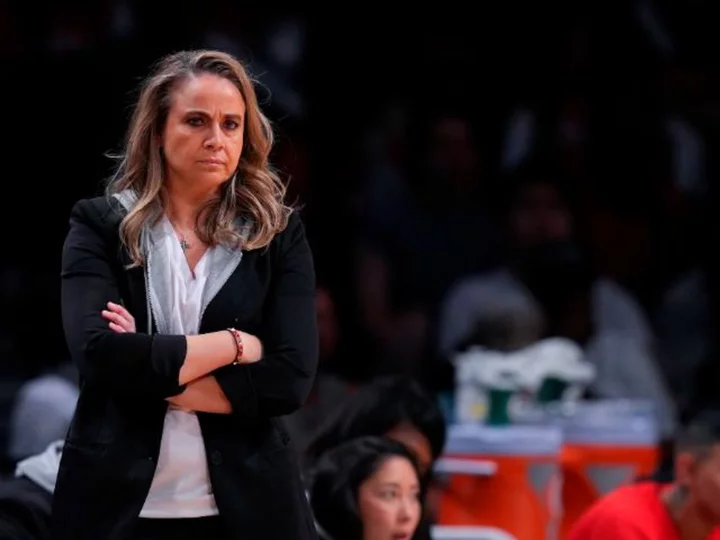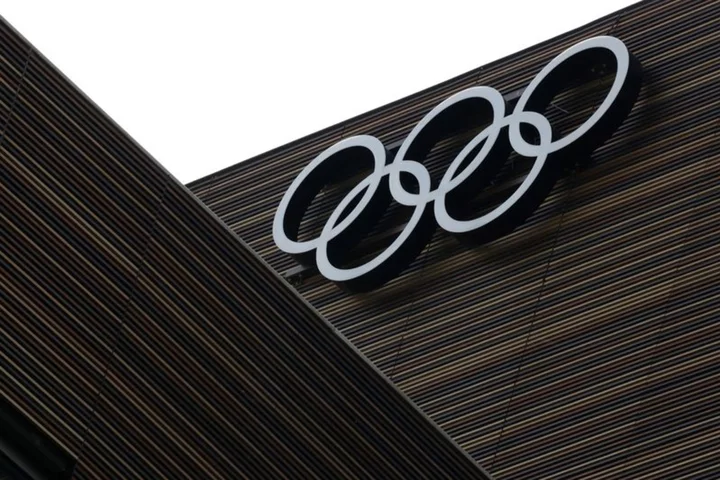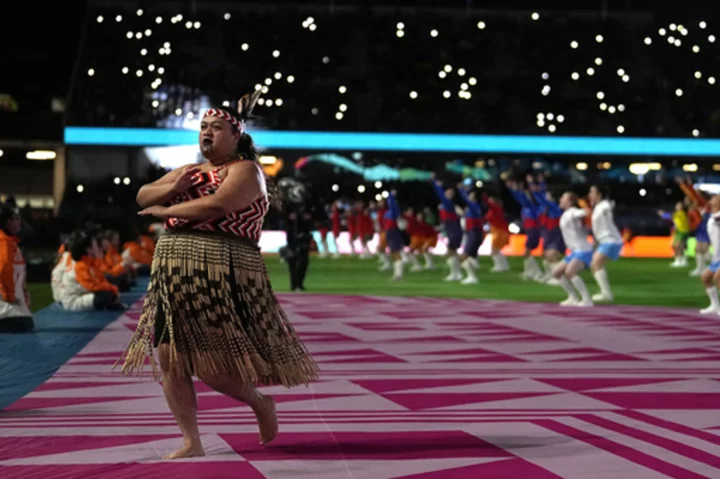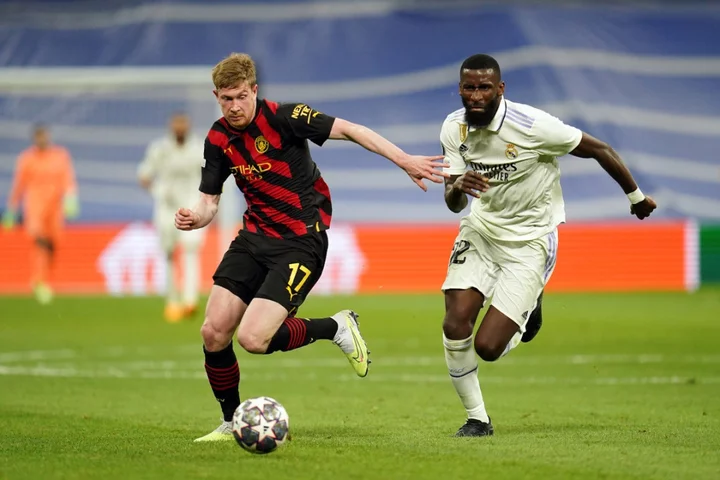No one expected Jamie MoCrazy to live after her fall. The chances of survival are slim when the brain starts bleeding in eight spots. Her fatality report was written in the helicopter that took her to the Vancouver hospital where she would spend the next few weeks of her life. Family and friends waited, hoping for a miracle but fearing the worst.
She had been competing in freestyle skiing's World Tour Finals in Canada when disaster struck. Having successfully completed her first run, ranking fourth in the standings, she cranked up the difficulty for her second and final run.
For the first woman to ever land a double-flip at the X-Games in slopestyle ski -- an event where athletes race down a slope navigating obstacles -- and who had been ranked among the world's top two in her event for the three years prior to this competition, finishing off the podium was not an option. "You don't remember the fourth-place finisher," she tells CNN Sport.
So she attempted a double 'flat-7' off-access backflip, a trick she had been practicing for a week leading up to the Finals.
"It was an off-access trick and it had never been done before, so I was pushing the limits again," explains the now 30-year-old, recalling her last memories of that April day in 2015. "But even though the trick was big, that wasn't the only reason I went into a coma."
MoCrazy -- she changed her legal name from Crane-Mauzy to her childhood nickname after marrying last May -- kissed her sister Jeanee, who was also competing, albeit in the separate halfpipe discipline, and set off for what was to be a career-defining performance. Instead, what happened next changed her life. In fact, it nearly killed her.
She remembers nothing of what happened when her head whiplashed into the snow on landing from her flip. She went into a natural coma, was intubated on the mountain and a battle began to save her life.
"For the first 24 to 48 hours, there was a strong understanding that the injury might take Jamie's life and they made that very apparent that, statistically, and from how she was presenting and the level of damage, that it was likely she was not going to survive," her sister Jeanee tells CNN.
During those days in Vancouver, MoCrazy became one of the first people in North America to have catheters placed into her brain which allowed physicians to instantly monitor and modify her brain's oxygen and nutrient levels, as well as her blood pressure.
Ten days after the accident, against the odds, the then 22-year-old opened her eyes, just for a few seconds, but long enough to add a flicker of light to the darkest of days. But even then, as Jeanne explains, her sister was "almost totally unconscious the entire time" and the right side of her body was paralyzed.
It took six weeks for the Connecticut-native to remember who she was and recognize her parents. She had a vague recollection of Jeanee but not of her younger sister, Jilly. "It was like being reborn, like she was an infant, basically she had to re-grow from there," says Jeanee.
MoCrazy was flown to Salt Lake to be closer to her family, which allowed her mom Grace, better known as "Mama Fruit" and who had studied early childhood brain development, to live with her in the hospital where she introduced what Jeanee describes as "wellness techniques" to complement the medical care her daughter was receiving.
It was the beginning what the former skier calls the second version of herself, "Jamie 2.0." Recovery was slow, often painful. There were physical and mental hurdles to overcome. "We did everything together," Jeanne says of that summer, even going to the bathroom, she adds, to ease the confusion her sister would suffer when alone.
MoCrazy had been intubated for such a lengthy period that it took two months for her to re-learn to swallow.
"She had to have thickened liquids because the muscles had been pretty much destroyed by the breathing tube," Jeanee says.
Then MoCrazy had to learn to talk again. At first, she had to be taught how to express herself and then, in Jeanee's words, how to cognitively "articulate and speak like an intellectual adult," which improved when she returned to college, later graduating from Westminster College in Salt Lake City with a degree in communications.
Her mom forced her to learn algebra again, the argument being that her brain had to relearn its critical thinking skills. It was her mom who taught her how to read using kindergarten books and how to write.
"I basically did therapy or I slept," MoCrazy says, adding that she would not be the person she is today were it not for her mother's care.
And, like a toddler learning to master climbing, she would walk stairs every day, up and down endlessly with the help of family and a gait belt, which is placed around the waist so a caregiver can assist by holding the belt, as she rebuilt muscle strength and muscle memory in an attempt to walk again.
Climbing an alternative peak
But, in many respects, the physical challenges she faced were the easiest. "I was getting a lot of attention and applause ... 'Wow, Jamie's walking again. Jamie's riding a bike' ... my cognition and my emotions were greatly affected and took a long time to heal," she says.
It took her five years to emotionally recover from the accident, MoCrazy says.
"Nobody knew that, nobody was paying attention, nobody really understood," she says. "And emotions have been scientifically proven to be affected by traumatic brain injury. It affects your emotions, and it also changes your life.
"That does not mean that your life has to be worse. I use the metaphor of climbing an alternative peak ... the views might be even more amazing. But you have to climb. And while you're climbing, your life will be different, and you will have different challenges and different opportunities."
Even when she was in a wheelchair, her intention was to compete again. Her goal was to live the only life she had known, that of a high-achieving young athlete with hopes of becoming an Olympian.
Then, during the first winter of her recovery, reality struck.
"I felt old and washed up at 23," she says. "No vision, no future. I felt done and going back to college definitely helped me set goals and be tested on things and actually start performing again and build a new life for myself."
Jeanne went to New Zealand that winter for her first competitive event since her sister's accident.
"I just cried the whole competition, I couldn't handle it at all," she says, "and then when I came back, that was the hardest part because, even when it was all-consuming beforehand, once she woke up, she was really happy and she was really fun and she was like a really fun child to hang out with.
"And we played toys and did our projects ... it was like parenting a 10-year-old, but mostly like a fun 10-year-old. Then in the winter, she started feeling like she was fine, but she wasn't fine and, at that point, she was more like the rebellious teenager."
Jeanne says her job during that period was keeping her older sister safe, making sure she didn't take car keys because no matter how capable MoCrazy felt, the truth was she was unable to multitask.
"She could literally have just the one thought in her head. That was the harder part. She was really not emotionally healed yet, but she physically was," says Jeanne. "So the entire world treated her as if she was fine, except for those of us who lived with her and knew she wasn't fine."
Undoubtedly, life has changed for MoCrazy since the accident. She is the same, she says, though some of her childhood traits have returned.
"I'm just much more goofy, but that's how I was as a child," she says. "I'm still adventurous and still hard working and ambitious. I think a lot of my traits stayed the same."
She has since returned to the mountain where she almost died, to celebrate her marriage to the love of her life, Reggie, an experience she describes as "one of the most beautiful, breathtaking, emotional of my life."
MoCrazy is also skiing again, though with caution. "I still don't do tricks and I still don't compete," she says, adding that, though her brain is now stronger, she doesn't know what would happen were she to hit her head hard again.
She says she feels "completely recovered" from the injury, though life has since thrown more misfortune her way, namely the death of her oldest sister, Amy, from leukemia in 2022, who was one of the physicians who cared for her at Vancouver General Hospital.
"She saved me, and I couldn't save her and that was really challenging," she says. "So I have gone back to therapy, but it definitely is not because of my brain injury."
Her life goal is now to help others who have suffered traumatic brain injuries and raise awareness on recovery methods, setting up the non-profit organization MoCrazy Strong with Jeanee and her mother for the purpose of "changing the narrative" and "giving back."
In March of this year, MoCrazy and her sister went to Capitol Hill to talk to legislators and show a recent short documentary entitled "#MoCrazyStrong" that has been made about her recovery process, one which was particularly family-orientated, she says.
"There are so many decisions" she says her family made "that would have changed the outcome that you see," explaining, as way of example, that her mom would tape her stronger hand to make her use her weaker one.
"I understand how fortunate my recovery was in the factors that I had so much education in my family of caregivers," she says.
"And the fact that I am a White, privileged, accomplished athlete with finances made a huge difference in my recovery. So my goal is to share that ... and save millions of lives. And we are starting to do that and that feels very rewarding to be able to take this story and save people with it.
"I feel completely healed. And something that really helps with my contentedness in life is that I feel like I have an alternative peak and I am seeing some amazing views and I'm helping others."

